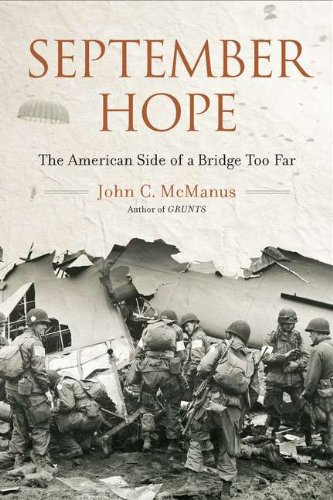September Hope: The American Side of a Bridge Too Far
Toward the end of the summer of 1944, the Allied forces were hopeful about an imminent victory over the Third Reich. Operation Market Garden occurred on September 17, 1944; it was to be the largest military airborne drop and ensuing ground combat encounter of World War II. Its target was several bridges, which, when taken, would lead a path into Berlin. McManus calls it “a Hail Mary pass.” He blames the unexpected result on Eisenhower’s poor decision-making, as he vastly underestimated the German resolve. McManus presents a complex work filled with methodical detail. The book is divided into Part One, The Leap, and Part Two, The Fall, which are apt metaphors for the faithful hope and ultimate doom that fractured the Allied forces, with massive casualties and death across all ranks. He supports his arguments with copious primary sources, such as eyewitness accounts, journals, oral histories, memoirs and more.
After reading September Hope, readers will never be able to pass a donation table for disabled veterans without recalling the soldiers who took part in this famous encounter. The soldiers displayed unimaginable bravery and physical and emotional strength during this period of wartime hell. McManus forces readers to face the madness of their sacrifices.










